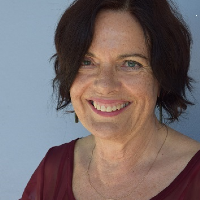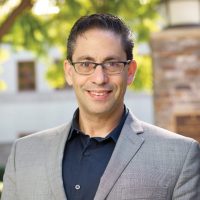Increasing Registration as an Organ Donor
Associate Professor Gail Moloney & Professor Jason Siegel
Respect, interaction & immediacy. A proven pathway to registering organ donation decisions
Associate Professor Gail Moloney
Gail Moloney is an Associate Professor in the Discipline of Human Sciences within the Faculty of Health at Southern Cross University.
Gail’s interest in organ donation began with her PhD in 2002, which drew from the theory of social representation to understand how organ donation was understood by those in the lay world rather than a poor cousin of medical knowledge.
In her recent DoRN Week of Talks presentation, Gail discusses research that she and her team (DRREAM: Donation, Registration, Research, Education Awareness) have conducted over the last six years with the aim to increase the number of people who register their organ donation decision on the Australian Organ Donor Register (AODR).
To access Gail’s free talk, please click on the video below.
Increasing organ donor registration at Department of Motor Vehicles: the importance of approach, implementation, and replication
Professor Jason Siegel
Jason T. Siegel is a professor of psychology in Claremont Graduate University’s Division of Behavioral & Organisational Sciences. He is the director of the Survey Design Lab, the Depression and Persuasion Research Lab, and he is the co-director of the Institute for Health Psychology & Prevention Science.
Jason’s research focuses on the social psychology of health behaviour change. He utilises persuasion, motivation, and emotion theories to develop approaches for maximising the success of health campaigns and interventions.
In his recent DoRN Week of Talks presentation, Jason discusses some of his research that was conducted with the aim of investigating the role that messaging can play in the success of Department of Motor Vehicles (DMV)-based donor interventions.
To access Jason’s free talk, please click on the video below.
Q & As
The DoRN Week of Talks provided a unique opportunity to engage in an easy and convenient Q & A with presenters. Below we have listed the questions that we received for Gail and Jason, along with their answers.

Q&A- Associate Professor Gail Moloney
Could you please expand on how you are planning to scale your respect, interaction & immediacy model/ still operate under COVID conditions? Potentially, do you think the same quality of interactions could occur through online conversations, or perhaps if potential donors are offered a phone number they can call?
Thank you for your question and interest in our presentation. Respect is a central aspect of our interaction with people around organ donation, and we believe fundamental to increasing registration rates on the national register.
We are currently working on how we will scale the three principles that underpin our approach. I do think it is possible to ensure quality interactions can occur through online conversations; it is a matter of thinking through how this can occur. We are currently working on a paper that we hope to submit soon, so please keep in touch.
I have included the citations for our other papers that describe our approach.
Moloney, G., Upcroft, L., Rienks, S., Sutherland, M., Bowling, A., & Walker, I. (2020). Respect, Interaction, and Immediacy: Addressing the Challenges Associated With the Different Religious and Cultural Approaches to Organ Donation in Australia. Experimental and Clinical Transplantation, 18 (Suppl. 2), 43-53. doi: 10.6002/ect.rlgnsymp2020.L7
Moloney., G., Sutherland., M., Bowling., A., Upcroft., L., Jagdish., P. P., Walker., I., & Norton., M. (2020). Don’t forget the context when you are talking about organ donation: Social representations, shared mood and behaviour. Journal of Community and Applied Social Psychology, v 30, (6) 645-659). https://doi.org/10.1002/casp.2474
Sutherland, M, Moloney G, Norton, M., Bowling A., & Walker, I. (2020). Utilizing a Hospital-Based Setting to Increase Organ Donor Registrations. Transplantation, 104(6) 1210-1214. https://doi: 10.1097/TP.0000000000002981
Moloney, G., Sutherland, M., Norton., M., Walker, I. ( 2019). When is the gift given? Organ Donation, social representations and an opportunity to register. Journal of Community and Applied Social Psychology; 29 (3) 207-221. https://doi.org/10.1002/casp.2395
We are currently working on how we will scale the three principles that underpin our approach. I do think it is possible to ensure quality interactions can occur through online conversations; it is a matter of thinking through how this can occur. We are currently working on a paper that we hope to submit soon, so please keep in touch.
I have included the citations for our other papers that describe our approach.
Moloney, G., Upcroft, L., Rienks, S., Sutherland, M., Bowling, A., & Walker, I. (2020). Respect, Interaction, and Immediacy: Addressing the Challenges Associated With the Different Religious and Cultural Approaches to Organ Donation in Australia. Experimental and Clinical Transplantation, 18 (Suppl. 2), 43-53. doi: 10.6002/ect.rlgnsymp2020.L7
Moloney., G., Sutherland., M., Bowling., A., Upcroft., L., Jagdish., P. P., Walker., I., & Norton., M. (2020). Don’t forget the context when you are talking about organ donation: Social representations, shared mood and behaviour. Journal of Community and Applied Social Psychology, v 30, (6) 645-659). https://doi.org/10.1002/casp.2474
Sutherland, M, Moloney G, Norton, M., Bowling A., & Walker, I. (2020). Utilizing a Hospital-Based Setting to Increase Organ Donor Registrations. Transplantation, 104(6) 1210-1214. https://doi: 10.1097/TP.0000000000002981
Moloney, G., Sutherland, M., Norton., M., Walker, I. ( 2019). When is the gift given? Organ Donation, social representations and an opportunity to register. Journal of Community and Applied Social Psychology; 29 (3) 207-221. https://doi.org/10.1002/casp.2395

Q&A- Professor Jason Siegel
Where would you like to take the research next? Are there more replications in your future?
We are very much hoping that there will be more replications in the future. Last year, we applied for a follow-up HRSA grant, but HRSA cancelled the call after submitting the proposals. We planned to test two new approaches for increasing registration rates. We plan on moving ahead with those studies as soon as we find a funder. Also, the materials are still currently used by the offices throughout New Mexico. As such, we are excited that the project continues to be of utility even though the project period officially ended.
How do you think your results would have changed if you had made the vested interest condition self-focused (i.e., direct personal gain) instead of family focused?
We have long wondered how we can use direct personal gain appeals in the realm of non-living organ donation. The struggle is that there are limited direct personal gains that can be the focus of such efforts. Prior approaches have spoken about feeling like a hero or the good feeling one gets when they register, but this assumes that the recipient of such message will place a high value on those outcomes. We have also tried to get people to think about the lives that they will save, but the saving of lives only happens after the potential donor passes away, so it is not as effective as an appeal as we would like it to be. In short, we would love to focus on the direct personal gains, but we have failed to be able to do so. We sincerely hope we, or another group of scholars/practitioners can think of a way to do so.